Addition Practice Easy Numbers Worksheets for Ages 5-6
6 filtered results
-
From - To
Discover engaging Addition Practice worksheets designed specifically for children aged 5-6. Our easy-to-use resources help young learners develop their math skills by focusing on addition with simple numbers. These printable worksheets feature colorful illustrations and interactive exercises, making learning fun and enjoyable. Each activity is carefully crafted to build confidence in counting and combining numbers, laying a strong foundation for future math success. Parents and educators can effortlessly guide children through these worksheets, ensuring an engaging learning experience. Start your child’s math journey today and watch them thrive in addition skills with our tailor-made practice materials!
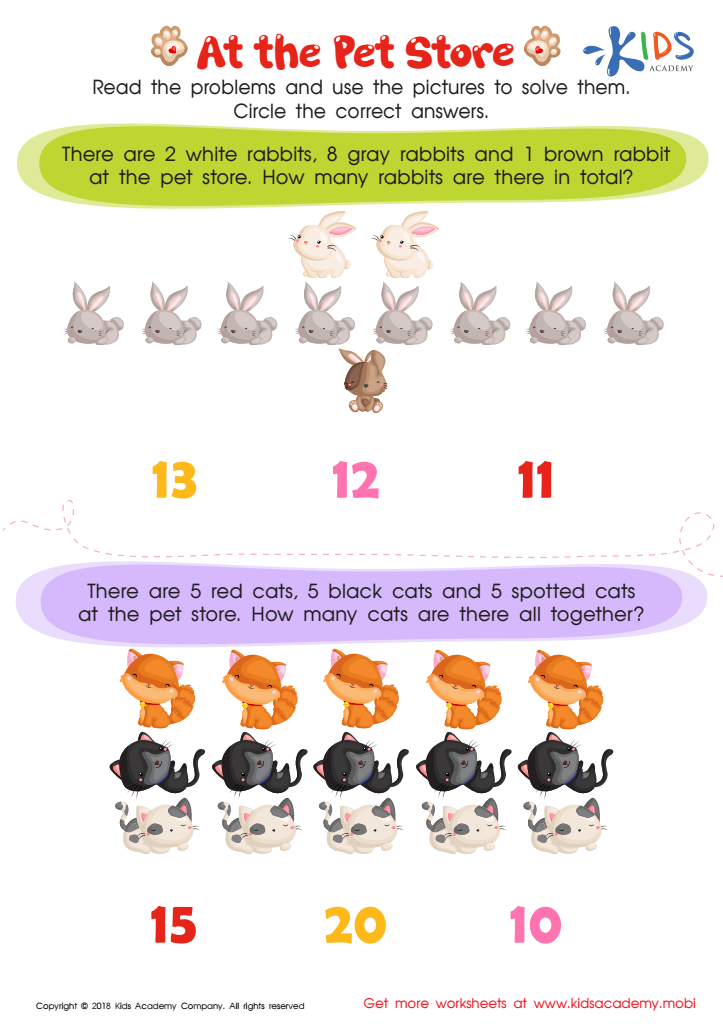

At the Pet Store Word Problems Worksheet
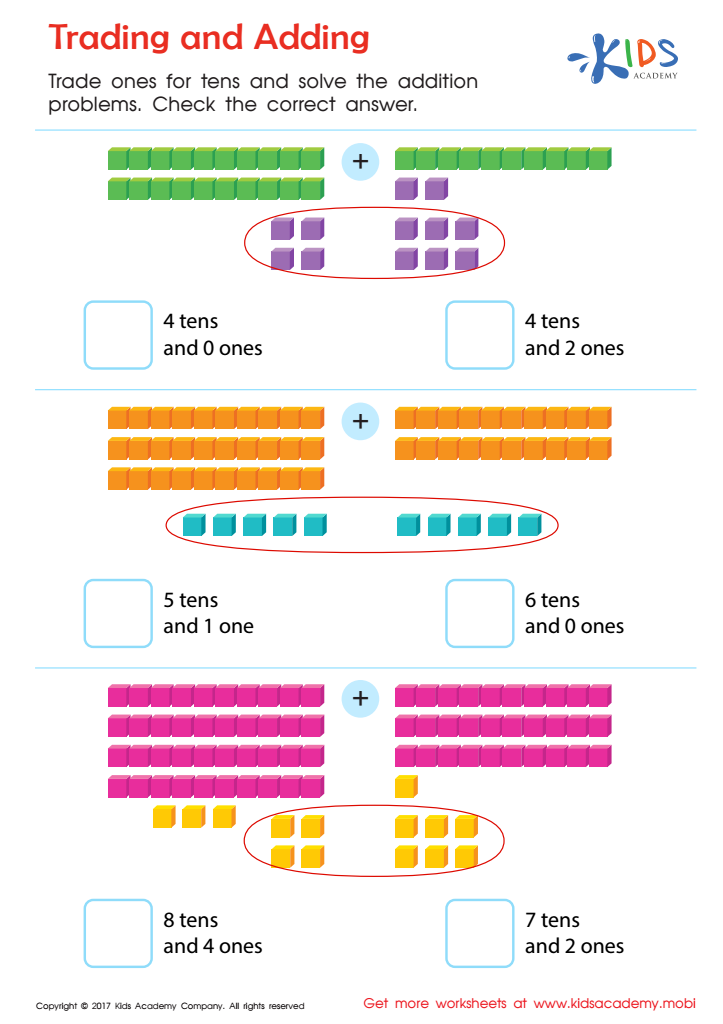

Trading and Adding Worksheet
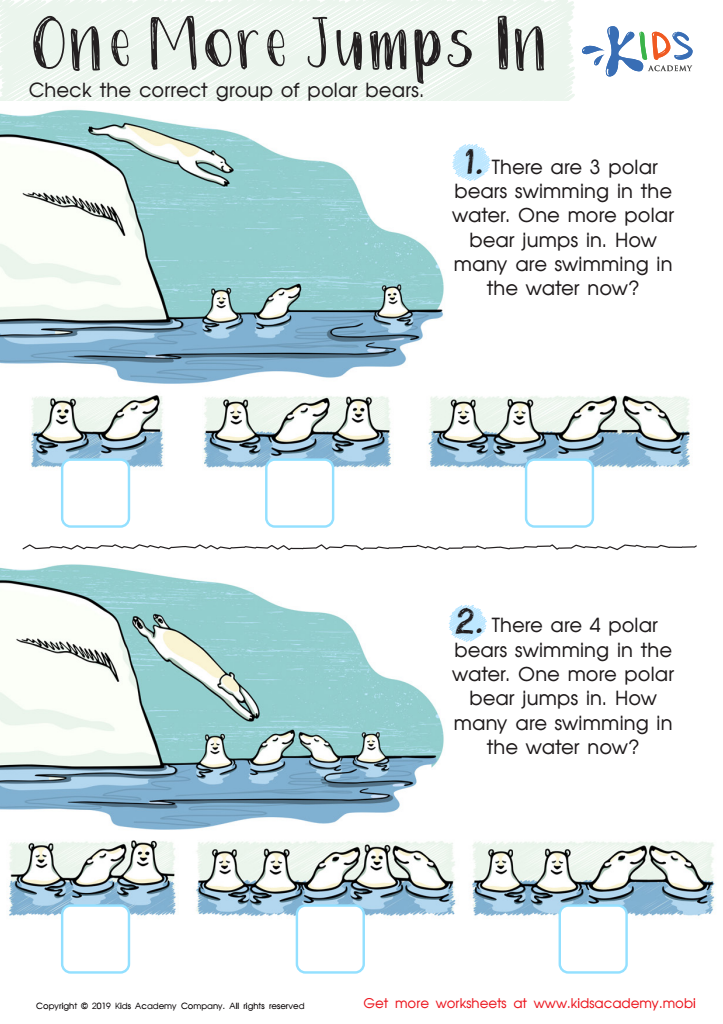

One More Jumps In Worksheet
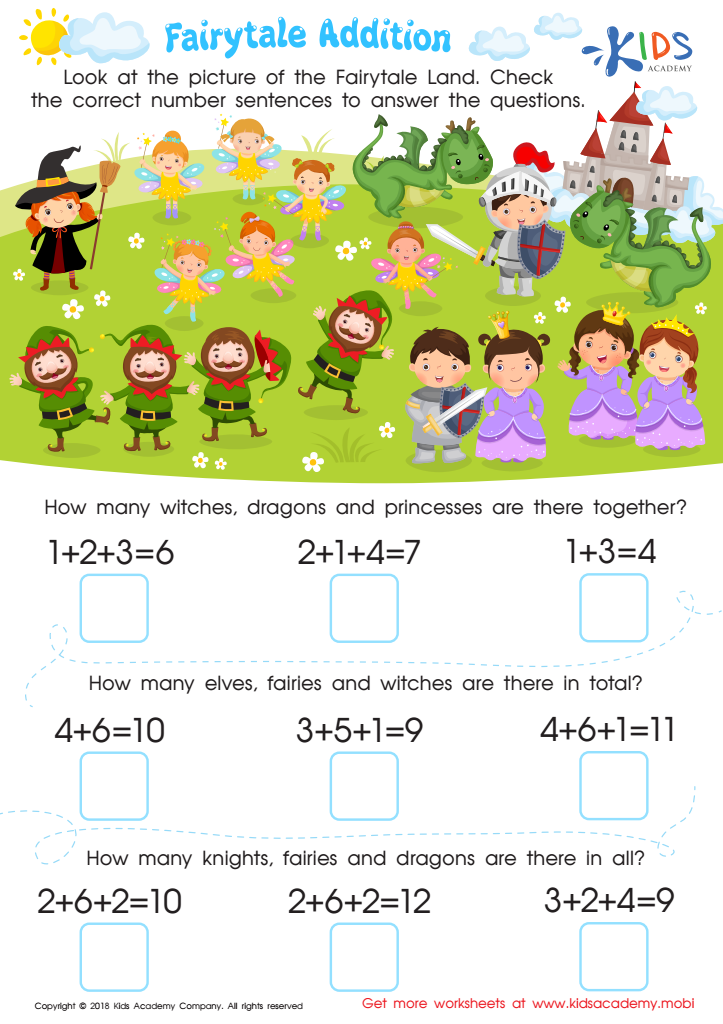

Fairytale Addition Worksheet
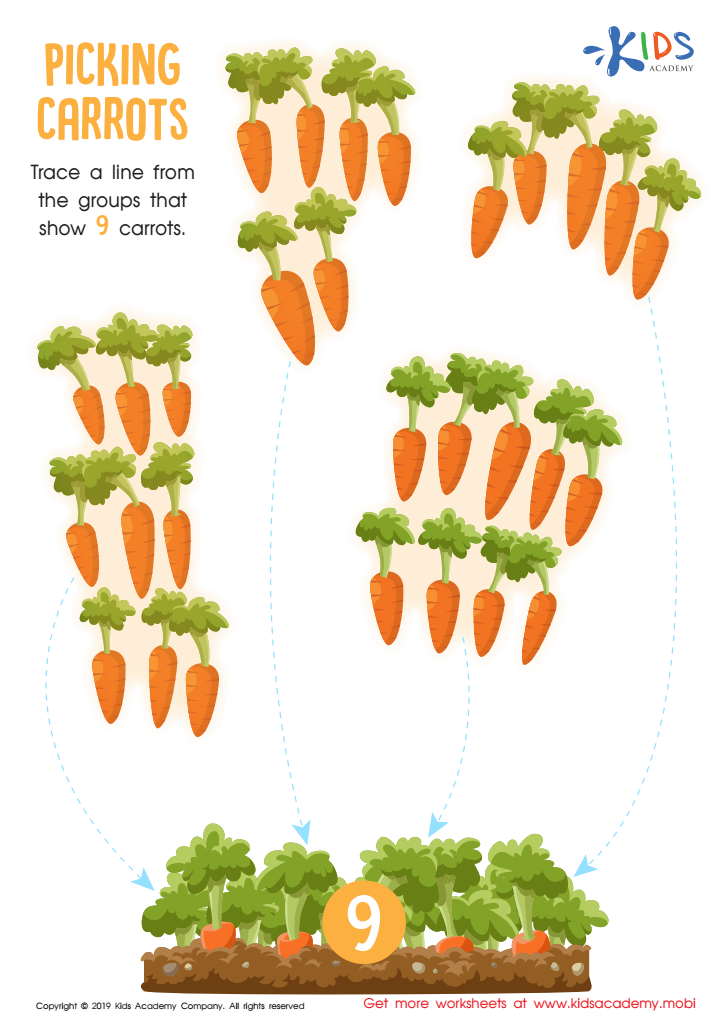

Picking Carrots Worksheet
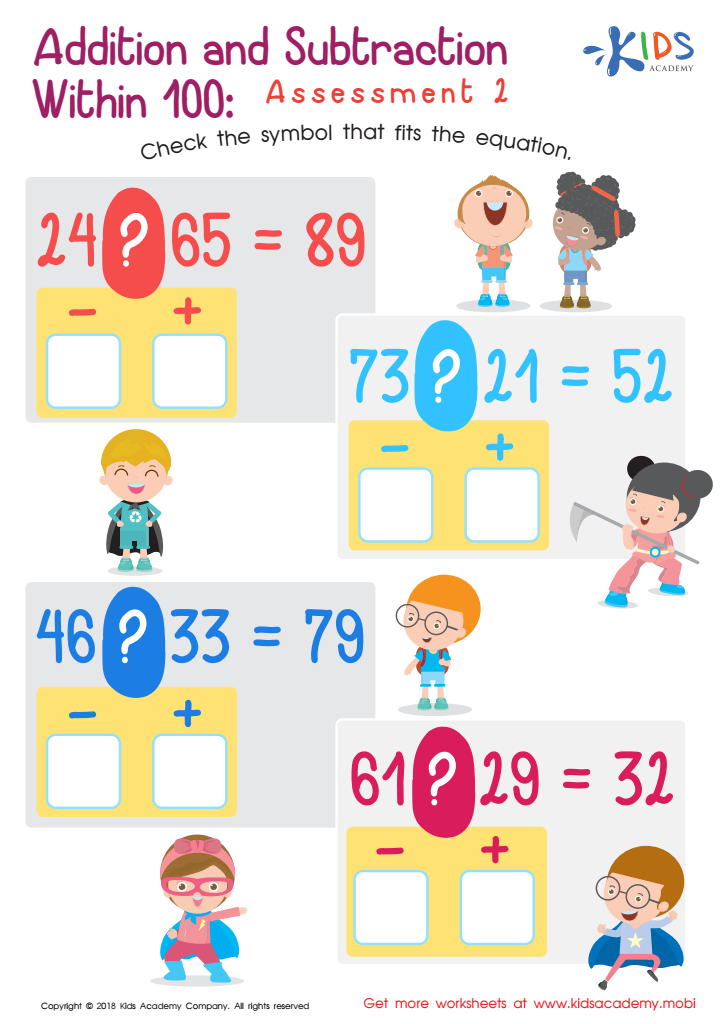

Addition and Subtraction Within 1: Assessment 2 Worksheet
Parents and teachers play a crucial role in the early mathematical development of children, particularly in foundational skills like addition. Practicing easy numbers for addition, especially for ages 5-6, is vital for several reasons. First, at this age, children are building their confidence and basic numeracy skills, which serve as the cornerstone for advanced math concepts later on. Engaging kids with simple addition not only helps them grasp the concept of combining numbers but also dials into their cognitive development, enhancing critical thinking and problem-solving skills.
Moreover, routine addition practice can make learning fun and interactive. By utilizing games, visual aids, and everyday scenarios, adults can create a playful environment that promotes engagement and reduces anxiety around math. This approach helps instill a positive attitude toward mathematics from a young age.
Additionally, mastering basic addition is significant for academic readiness. Children who are proficient in simple addition are better prepared to tackle more complex math tasks in later grades, allowing for smoother transitions and deeper understanding of mathematical operations.
Ultimately, fostering early math skills through easy addition practices not only enriches children's learning experiences but also prepares them for future academic success.

 Assign to My Students
Assign to My Students
















